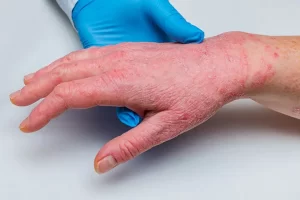
How to Treat PTSD and Social Anxiety
If you have experienced trauma or social anxiety, the most important thing is to know how to treat it. This condition can lead to high levels of distress and changes in behavior. It can make you hypervigilant and affect your relationships. If you experience these symptoms, you should seek help from a therapist or mental health professional. You can also reach out to friends and members of your faith community for support. These strategies can help you manage your symptoms and prevent unhealthy coping behaviors.
The first step in treating PTSD is to address the trauma that caused the symptoms. When a person experiences trauma, it is often buried in the subconscious. It’s easy to shut out memories of traumatic events, but talking about them can be incredibly healing. If you suffer from social anxiety, you should find a way to talk about it and work to reduce your fear of social situations.
During trauma, your body releases chemicals that trigger anxiety. Your brain responds to these chemicals by producing fear. It’s also important to know what your triggers are. While some people may be able to treat their PTSD with medication, others may need to try a different approach. Some people can start meditating to combat their symptoms, which can reduce their social anxiety symptoms.
Cognitive behavioral therapy and trauma therapy are both useful for treating social anxiety, but there are other methods to treat this disorder. Among these are eye movement desensitization and reprocessing. These methods focus on healing the traumatic event and can help people feel more comfortable in social situations. A trauma therapist can also work on the underlying issues that trigger the symptoms.
PTSD and SAD are often comorbid. When both conditions exist, they can have a significant impact on each other’s lives. A patient with a comorbid diagnosis of PTSD may be at increased risk for depression or suicidal ideation, which may make the condition more severe.
Post-traumatic stress disorder, or PTSD, is a serious disorder caused by an intensely traumatic event. It causes symptoms including insomnia, flashbacks, and uncontrollable thoughts about the traumatic event. The symptoms may interfere with daily activities. In some cases, the symptoms can last for weeks or even months.
In a recent study, the authors examined the association between PTSD and social anxiety disorder. The findings of this study indicate that social anxiety disorder and post-traumatic stress disorder are highly comorbid. This suggests that a shared environmental factor may also be an important factor. Furthermore, PTSD may also worsen a patient’s physical and mental functioning.
In some cases, a person suffering from PTSD may have intrusive memories of a traumatic event and may avoid situations, people, and places that remind them of this event. Other symptoms include difficulty sleeping and concentrating, frequent mood swings, and irritable outbursts. Some sufferers may even engage in self-harm or destructive behaviors. While treating PTSD is not easy, it is possible to overcome the symptoms with the help of a well-trained therapist.


